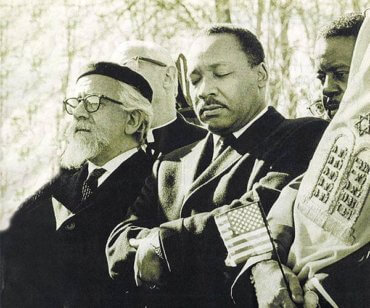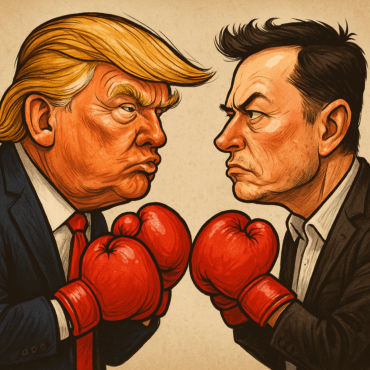Why Do Orthodox Jewish Men Wear Hats?
Dear JITC-
Why do Jewish men wear hats?
All the best,
Carla
Dear Carla-
Thanks for your question. It has been asked before:
A man asked his rabbi, “Why do Jewish men wear hats?”
The rabbi replied, “Because our forefather Abraham wore them.”
“How do you know that?” the man inquired.
“The Torah says, ‘And Abraham went out.’ Would Abraham go out without a hat?”
I can take your question two ways: why do we wear hats in general or why do we wear black hats in particular? I’ll address each briefly.
The general reason Jewish men cover their heads is to emulate Talmudic precedent. The Talmud in tractate Shabbos (156b) teaches us that covering the head is a way to cultivate fear of Heaven. (“Fear” in this sense means reverence, not terror.) It shares the story of Rav Nachman bar Yitzchak, whose mother had reason to believe that her son would grow up to be a thief. She told him to always cover his head, a practice that at the time was limited to Torah scholars, which would make him reverent of God and cause him to seek Divine mercy, though young Nachman was not aware of the reason for his mother’s directive. We see that the head covering served its intended purpose because on one occasion, Rav Nachman was studying under a date tree and his head covering fell off. When he looked up and saw the dates, he was overpowered by his inherent nature and stole some.
We also see from the Talmud that Rav Huna b’rei d’Rav Yehoshua expected to receive Divine favor because he never walked four cubits (about six feet) with his head uncovered (Shabbos 118b). We are told that the reason for this practice is to serve as a reminder that God is always above us (Kiddushin 31a). This is why the skullcap called a “kippah” in Hebrew is called a “yarmulkeh” in Yiddish. It comes from the Aramaic words “yarei Malka” meaning fear of the King (i.e., reverence for God).
Maimonides includes covering the head among the forms of propriety expected of Torah scholars (Hilchos Deios 5:6). It was later accepted as practice for every Jewish male and is codified as such (Orach Chaim 2:6; see Mishnah Brurah and Be’er Heitev there). [There may be differences in practical application between the Sephardic and Ashkenazic Jewish communities but such is beyond our scope.]
Now to address the black hats (fedoras, homburgs, et al.) worn by many Orthodox men for prayer and such formal occasions as weddings. Even before the practice of covering the head was universal to the point of becoming obligatory, we see a Talmudic opinion that one could not lead services bareheaded (Sofrim 14:15). This practice was likely popularized by the Christian practice to remove hats when entering a church, placing the Jewish practice in contradistinction. The Shulchan Aruch (Orach Chaim 91:3-5) discusses not praying, reciting blessings or entering a shul with one’s head uncovered. The Mishnah Brurah (91:12) says that nowadays the yarmulke one wears under his hat is insufficient to wear for prayer. Rather, one must wear the hat that he wears when he walks in the street. After all, we wouldn’t meet with important people without wearing a hat, so how could we even dream of talking to God with just our little skullcaps?
And here’s where things fall apart a little. In previous generations, it truly was inconceivable to go out without a hat. This changed in the 1960s with the result that people now walk in the street bareheaded and do indeed meet with important people that way. Those who now daven wearing only their yarmulkes are of the opinion that since the accepted cultural practice is no longer to wear a hat, the “nowadays” of the Mishnah Brurah no longer applies. Those who are strict to wear a hat are of the opinion that such has become the accepted Jewish practice and it is to be maintained even if our surrounding society has become more casual. This is similar to the recent question about wearing black. Wearing a hat is not the accepted practice in many communities for no reason; it is seen as more formal and more dignified.
So it is now the universal practice for Jewish men to cover their heads. Once a practice limited to scholars, it became embraced by the masses and ultimately codified as law for all male Jews. Additionally, many communities wear a more formal hat for prayer and special occasions. Once based on the general cultural norms of the times, this is now an independent Jewish practice embraced by adherents for its own sake.
Sincerely,
Rabbi Jack Abramowitz
JITC Educational Correspondent
If you found this content meaningful and want to help further our mission through our Keter, Makom, and Tikun branches, please consider becoming a Change Maker today.








1 comment
Sort by
I watched a series on Netflix named Shtisel. You maybe or may not be familiar with this series. The series raised many questions about why Orthodox Jews customs. I find it most interesting. THank you